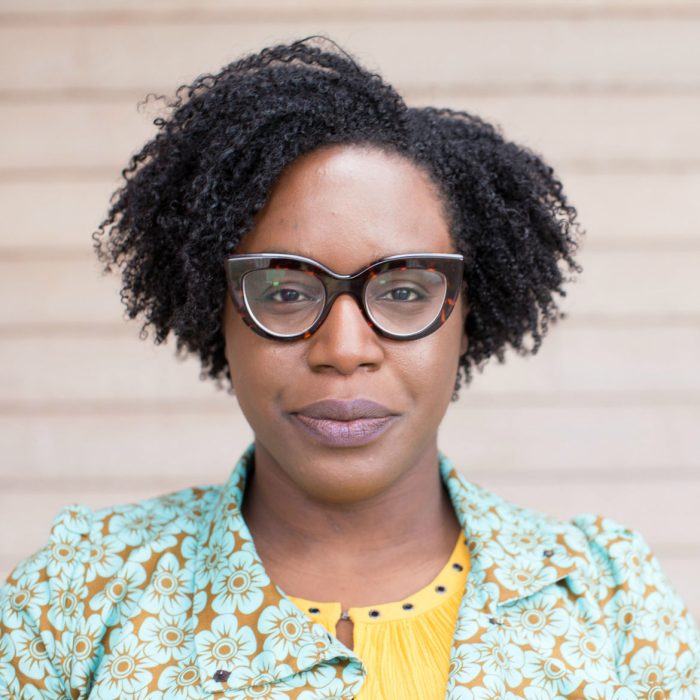Catapult Extra Excerpts
Five Questions for Lesley Nneka Arimah
“What I like about magical realism is that it throws our realism into stark relief.”
When I found out that Lesley Nneka Arimah was shortlisted for the 2016 Caine Prize for African Writing for her short story in Catapult , “ What It Means When a Man Falls From the Sky ,” I knew that I would want to get in touch with her and ask her some questions about her writing. Born in the UK but based in Minnesota, Lesley Nneka Arimah has been published in The New Yorker , Granta , The Toast, and other publications . Besides being a Kimbilio Fellow, Arimah has received grants and awards from the Commonwealth Foundation, the Association of Writers & Writing Programs (AWP), the Elizabeth George Foundation, the Jerome Foundation, and others. And if that wasn’t impressive enough, she has a short story collection and novel forthcoming from Riverhead Books.
1. “What It Means When a Man Falls From the Sky,” is set in the future, in a world where “mathematicians” can eat people’s grief. Can you tell us something about what inspired this story?
I am almost embarrassed to admit this because it makes me sound like a hippie, but it started with a dream, one I did not remember upon waking except that a man fell from the sky and that it was worrisome. I jotted the image and a question in my notebook where I store ideas and that note became the title. An earlier note, about people who could consume grief, caught my eye and I wondered what I could come up with if I paired the two. This story was the result.
2. In an interview in The New Yorker , you say that you like the idea of “creating new myths that speak to our current world.” What are some aspects of the present day that are influencing your work now?
I find myself very interested in the limits of technology. We can put a person on the moon, we have all sorts of information at the tips of our fingers in tiny computers we can slip into our pockets, but we still hold on to archaic ideas of, say, gender. The areas in which we have not changed fascinate me and I like to hold them up to the light and see what sort of shadows they cast. I wrote this story long before the migrant crisis became a ubiquitous part of our news cycle, but the persistence of seeing displaced people as an invading force hasn’t changed, for all our notions of progress. A story can be set in the past, present, or distant future—or even unrecognizable worlds—and still grapple with many of the same things.
3. In all your stories, you give women supernatural or nearly supernatural qualities; it seems to me that you do this in order to show this power or powerlessness. Can you explain this artistic choice in your work?
Actually, this story and “ Who Will Greet You At Home ” are the only (published) stories in which women have supernatural powers ( “ Second Chances ” comes close) and “ What is Means When a Man Falls From the Sky “ is the only one where the main character holds power, and even then it isn’t enough. What I like about magical realism is that it throws our realism into stark relief. Nneoma has the power to excise trauma, a life-changing gift that she reserves for those who can pay. We like to talk about what we would do if we won a million dollars or had magical powers and many of us talk in terms of altruism. But that’s only because we know we cannot actually do these things or because we haven’t actually won the lottery. The sad end of many who win lotteries should give us a clue. And if, say, Aliko Dangote or Mark Zuckerberg asked you to heal their (hypothetical) cancer, you’d probably ask them to slip you a few mil.
4. Can you tell me a little bit about your forthcoming books and how they came about?
In terms of story-in-head to story-on-page, the collection came together in about two years, most of it at a desk job during my down time. The stories are as varied as my interests, a patchwork of realism, magical realism, and dystopian science fiction. Learning how to write those stories, however, happened before that, lots of reading in lots of genres, from capital-L Literature to romance novels whose covers I’d hide from my parents. It’s important to read widely. And smuttily. The novel is magical realism.
5. Who are some of your biggest inspirations, and why ?
I find myself drawn to and inspired by works that deal with the relationships between women. Take, for example, My Little Pony (the reboot, obviously), which follows a cast of females ponies who fight to save their universe. It’s a world where the heroes are women, the villains are women, and when you’re forced as an artist to write beyond the token woman doing “ woman” things, you end up with characters that are multifaceted. You end up with Twilight Sparkle, the lead pony who is kind of annoying and smug. You end up with the butch queer and femme queer ponies, Rainbow Dash and Apple Blossom. You end up with Pinkie Pie, goddess, clown. The plurality of female characters means they end up being as dimensional as women are in real life. The same dynamic plays out in the comic book Bitch Planet , whose details I won’t give away to avoid spoilers (buy and read it immediately), but it’s a work that poses interesting questions that I find myself wanting to answer.
